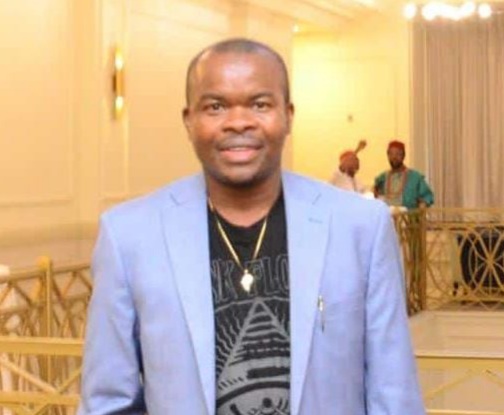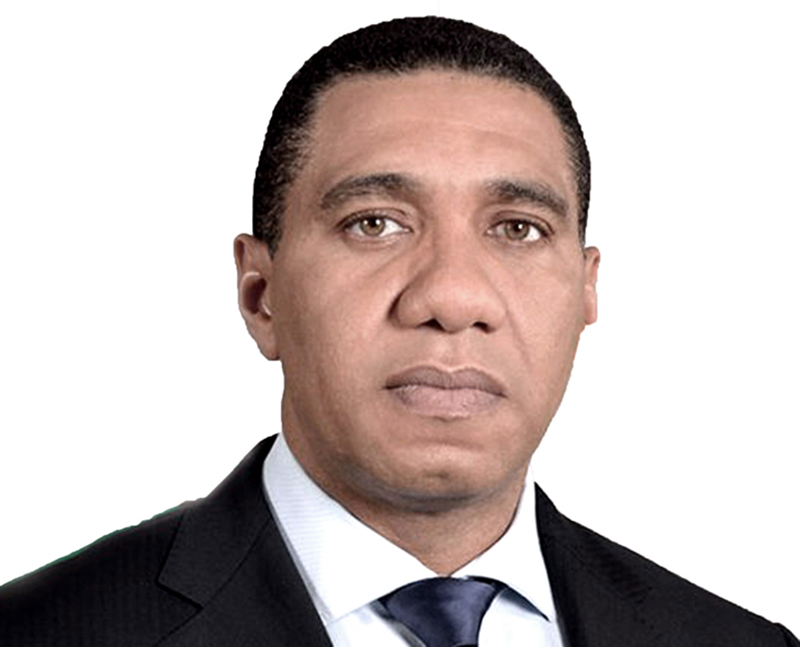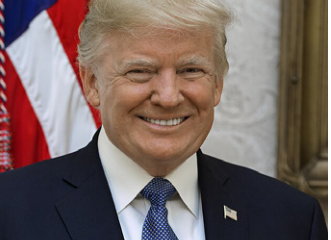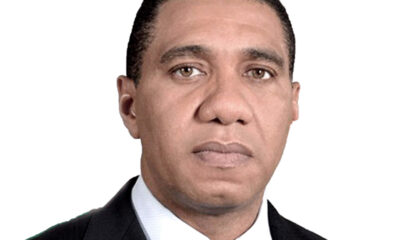News
Kenyan Police Declare ₦11m Bounty on Fugitive Serial Killer

Kenyan Police Declare ₦11m Bounty on Fugitive Serial Killer
Kenyan police have announced a reward of 1 million shillings (about ₦11 million) for information leading to the arrest of Collins Jumaisi Khalusha, a suspected serial killer accused of murdering more than 40 women in Nairobi.
Khalusha, who was arrested in August 2024, escaped from custody shortly after his detention, alongside 12 other inmates, in what has become one of the country’s most embarrassing security lapses.
He reportedly cut through a wire mesh roof and scaled a perimeter wall at a police station considered one of Nairobi’s most secure — located near the US Embassy and UN offices.
The suspect had been linked to the gruesome killings of young women, aged between 18 and 30, whose mutilated bodies were discovered in a disused quarry in the capital.
Outrage has continued to trail the police’s inability to re-arrest him more than a year after the jailbreak.
Human rights activist, Khalid Hussein, accused authorities of failing to take the matter seriously, alleging that some bodies were still rotting in the quarry.
He described the latest reward announcement as a reaction to public embarrassment caused by a local TV documentary on the unsolved murders.
“This one million shillings reward is absolutely useless. It is a reaction, not a commitment,” Hussein said.
The Directorate of Criminal Investigations (DCI), in a post on X, promised to pay the bounty to anyone who provides “credible information” that leads to Khalusha’s re-arrest.
Police had previously announced a reward last year, but without specifying an amount.
Several officers were also arrested on suspicion of aiding the escape but were later released on bail.
The case has put Kenyan law enforcement under intense scrutiny, with many citizens questioning how a mass killer could have been allowed to slip through the cracks, especially as the crime scene was barely 100 metres from a police station.
At the time of Khalusha’s arrest, DCI chief Mohamed Amin described him as “a psychopathic serial killer who has no respect for human life.”
He was scheduled to face multiple murder charges before his disappearance.
Interior Minister Kipchumba Murkomen, reacting to the escape, described the incident as “regrettable” and “a sad story,” while expressing hope that the fugitive would soon be captured.
Business
Taxation and the Nigerian Diaspora

Taxation and the Nigerian Diaspora
For Nigerians in the diaspora, taxation has recently taken on a renewed urgency, shaped by Nigeria’s evolving fiscal reforms and global policy shifts that increasingly touch lives beyond the country’s borders. From London to Atlanta, Toronto to Berlin, conversations among Nigerians abroad are no longer just about exchange rates or remittance channels, but about what the newly introduced tax reforms at home truly mean for them.
Nigeria’s latest tax reforms, scheduled to take effect from January 2026, are among the most ambitious fiscal overhauls in decades. Driven by the need to boost non-oil revenue, the Federal Government has made clear its intention to widen the tax base and improve compliance rather than raise blanket tax rates. According to official data, Nigeria’s tax-to-GDP ratio remains below 11 per cent, far lower than the African average of about 16 per cent. This gap has pushed policymakers to rethink how revenue is generated, especially in an economy grappling with subsidy removal, currency reforms and rising public debt.
For Nigerians living abroad, the immediate concern was whether these reforms would extend Nigeria’s tax reach to foreign-earned income or remittances. That fear was amplified by online speculation and misinformation. However, the government has repeatedly clarified that foreign income earned by non-resident Nigerians remains exempt from Nigerian taxation. Residency remains the key determinant. Under the revised framework, an individual becomes tax-resident only if they spend 183 days or more in Nigeria within a 12-month period. For the vast majority of Nigerians in the diaspora, this condition does not apply.
Equally important is the clarification on remittances. Nigeria received approximately 20.5 billion dollars in diaspora remittances in 2023, according to World Bank estimates, making it one of the largest recipients globally. These inflows support millions of households and often serve as informal social security. The government has stated unequivocally that personal remittances sent to families are not subject to taxation. This reassurance, publicly restated by the Presidential Committee on Fiscal Policy and Tax Reforms, was crucial in calming fears of an erosion of diaspora support for families and communities back home.
That said, the reforms do affect Nigerians abroad who maintain economic ties with Nigeria. Rental income from properties, dividends from Nigerian companies, business profits and capital gains derived within Nigeria remain taxable. What has changed is the effort to streamline rates and enforcement. Under the new structure, individuals earning up to ₦800,000 annually in Nigeria are exempt from personal income tax, while higher income brackets attract progressive rates of up to 25 per cent. For diaspora investors, this clarity offers both reassurance and responsibility.
Yet taxation for Nigerians abroad is not shaped by Nigeria alone. Developments in host countries also matter. In the United States, for example, proposed legislation to impose an excise tax on outbound remittances has raised concerns among immigrant communities, including Nigerians. While still under debate, such proposals highlight how diaspora Nigerians can face additional financial pressure even when Nigeria itself does not tax remittances. These external policies complicate the already delicate balance between supporting home and meeting obligations abroad.
Beyond the figures and laws lies a deeper emotional dimension. Many Nigerians in the diaspora already shoulder what feels like an unspoken tax through remittances, school fees for relatives, medical bills and community obligations. When new fiscal policies are announced, the question is rarely about refusal to contribute but about trust. Diaspora Nigerians want assurance that taxation is tied to accountability, improved infrastructure and governance reforms that justify continued engagement.
Tax policy also influences long-term decisions. Uncertainty or perceived hostility can discourage diaspora investment, while transparent and predictable systems can attract it. Nigeria’s diaspora population is estimated at over 15 million people, with significant skills, capital and global networks. How taxation is framed and implemented will shape whether this community feels like partners in national development or distant revenue targets.
For second-generation Nigerians born abroad, the issue is even more symbolic. Their connection to Nigeria is often cultural rather than administrative. If engagement with the country is defined largely by obligations without visible benefits, the risk is gradual disengagement. Taxation, therefore, becomes a measure of how Nigeria defines citizenship in a globalised world.
In the end, the newly introduced tax reforms present both reassurance and reflection for Nigerians in the diaspora. They confirm that foreign-earned income and personal remittances remain protected, while reinforcing the principle that income generated in Nigeria carries responsibility. More importantly, they reopen a broader conversation about trust, inclusion and mutual benefit. For Nigerians abroad, tax is no longer just a line in a policy document; it is a mirror of how connected they remain to the country they still call home.
News
Holness Urges Unity as CARICOM Navigates Shifting Global Order

Holness Urges Unity as CARICOM Navigates Shifting Global Order
Outgoing Chairman of the Caribbean Community (CARICOM) and Prime Minister of Jamaica, Dr Andrew Holness, has called on Caribbean nations to remain united, disciplined and strategic as the region confronts an increasingly complex and volatile global environment.
In his end-of-year message marking the conclusion of Jamaica’s chairmanship of CARICOM for the second half of 2025, Holness said rising geopolitical crises and external pressures on economies, security and diplomacy demand collective clarity and cohesion from the region.
According to him, CARICOM’s response to global challenges must continue to be anchored on shared principles, including respect for sovereignty, adherence to international law, peaceful engagement and dialogue-driven conflict resolution.
“CARICOM’s credibility has always rested on its ability to manage differences through diplomacy rather than division, and through cooperation rather than confrontation,” Holness said, stressing that such commitments are vital to safeguarding peace, development and independence across member states.
Reflecting on Jamaica’s tenure as chair, the prime minister described it as an honour, expressing gratitude for the unity and shared purpose that guided the Community’s work throughout the year.
He noted that the spirit of regional solidarity was particularly evident in the aftermath of Hurricane Melissa, which caused widespread devastation across several Caribbean countries.
Holness said the regional and international support that followed the disaster underscored a defining truth of CARICOM: that member states are bound together as a family and do not stand alone in moments of crisis.
On regional integration, he said CARICOM recorded notable progress in 2025, especially with the historic decision by Barbados, Belize, Dominica, and St Vincent and the Grenadines to implement full free movement of persons among themselves from October 1, 2025.
He described the move as a “concentric circles” approach that allows willing states to deepen integration while leaving room for others to join when ready.
The Jamaican leader also outlined coordinated advocacy efforts that helped protect CARICOM’s interests amid shifting global trade conditions, with support from the CARICOM Private Sector Organisation and strategic partners.
Expanded airlift within and beyond the region, he added, strengthened trade ties and supported food and nutrition security initiatives.
On the global stage, Holness said CARICOM continued to speak with one voice through joint statements and participation in major international forums, including the United Nations General Assembly, the G20 Leaders’ Summit and the CELAC–EU Summit.
He said this unified approach enhanced foreign policy coordination and improved the region’s capacity for proactive crisis response.
Addressing security concerns, Holness referenced the Montego Bay Declaration on Transnational Organised Crime and Gangs, adopted in July, noting that CARICOM remains committed to tackling emerging threats through multiple mechanisms while recognising the inseparable link between security and development.
On climate change, he said outcomes from COP30 in Belém fell short of the urgency faced by small island and low-lying coastal states, despite renewed commitments to multilateralism.
He reaffirmed CARICOM’s commitment to the 1.5°C temperature goal and commended regional institutions, including the Caribbean Community Climate Change Centre, CDEMA, CARPHA and the Caribbean Development Bank, for strengthening resilience and preparedness.
Holness also pointed to deeper engagement with Africa during the year, particularly through the Second Africa–CARICOM Summit in Addis Ababa, which advanced cooperation on trade, investment, culture and global advocacy, including reparations.
On Haiti, he said sustained CARICOM advocacy helped keep the crisis on the international agenda, contributing to a UN Security Council resolution establishing a Gang Suppression Force.
He expressed optimism about preparations for free and fair elections in 2026.
As he handed over the chairmanship, Holness said he remained confident in the strength and future of CARICOM, urging continued dialogue, mutual respect and fidelity to the principles underpinning regional cooperation.
He wished citizens of the Caribbean a safe holiday season and a peaceful, prosperous 2026.
News
Nigeria Writes Off $1.42bn, N5.57trn Legacy NNPCL Debts After Reconciliation

Nigeria Writes Off $1.42bn, N5.57trn Legacy NNPCL Debts After Reconciliation
The Nigerian Government has written off the bulk of legacy debts owed by the Nigerian National Petroleum Company Limited (NNPCL) to the Federation Account, clearing about $1.42 billion and N5.57 trillion following a reconciliation exercise approved by President Bola Tinubu.
The decision is contained in a regulatory document prepared by the Nigerian Upstream Petroleum Regulatory Commission (NUPRC) and presented at the November meeting of the Federation Account Allocation Committee (FAAC).
The move effectively settles long-standing balances arising from crude oil liftings, production-sharing contracts and joint venture royalties accumulated up to December 31, 2024.
According to the commission, the approval followed the recommendations of a stakeholder committee constituted to reconcile claims between the national oil company and the Federal Government.
“However, the commission recently received a Presidential Approval to nil off the outstanding obligations of NNPC Ltd as at 31st December 2024 as submitted by the Stakeholder Alignment Committee on the Reconciliation of Indebtedness between NNPC Ltd and the Federation,” the document stated.
Before the adjustment, outstanding obligations reported to FAAC stood at about $1.48 billion and N6.33 trillion.
Following the reconciliation, most of the balances were removed from the Federation’s books.
“Consequently, out of $1,480,610,652.58 and N6,332,884,316,237.13, the affected outstanding obligations that have been nil off are $1,421,727,723.00 and N5,573,895,769,388.45. The commission has passed the appropriate accounting entries as approved,” the regulator said.
An analysis of the figures shows that the write-off represents about 96 per cent of the dollar-denominated debt and roughly 88 per cent of the naira obligations previously classified as outstanding.
Officials familiar with the process said the decision was aimed at resolving years of disputes over historical claims between the parties and allowing both the Federation and NNPCL to operate with cleaner balance sheets going forward.
The NUPRC, however, clarified that the approval does not cover liabilities incurred in 2025.
Statutory obligations arising between January and October this year remain outstanding, with balances of about $56.8 million and N1.02 trillion linked to lifting-related charges and joint venture royalties.
The commission disclosed that part of the dollar-denominated liabilities had been recovered during the period under review.
“However, the commission received $55,003,997.00 in the month under review from the outstanding, leaving a balance of $1,804,755.32 and N1,021,550,672,578.87. The amount of $55,003,997.00 received is part of the total collection reported above for sharing by the Federation this month,” the document added.
The debt relief comes against the backdrop of weaker upstream revenue performance.
Data in the same FAAC document show that the commission fell short of its approved monthly revenue target for November by more than N540 billion, largely due to lower-than-expected royalty receipts from oil and gas production.
Actual collections in the month also declined compared with October levels.
-

 Business1 day ago
Business1 day agoTaxation and the Nigerian Diaspora
-

 Analysis2 days ago
Analysis2 days agoAre Forest Guards to the Rescue? By Alabidun Shuaib AbdulRahman
-

 News2 days ago
News2 days agoTwo Dead as Anthony Joshua Involved in Road Crash in Nigeria
-

 Analysis7 days ago
Analysis7 days agoBuhari, Power and the Burden of Integrity, by Alabidun Shuaib AbdulRahman
-

 News1 day ago
News1 day agoUS Pledges $2 Billion to UN Humanitarian Programs Amid Funding Cuts
-

 News1 day ago
News1 day agoHolness Urges Unity as CARICOM Navigates Shifting Global Order










